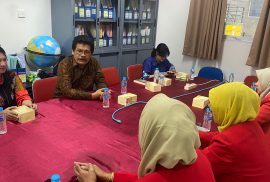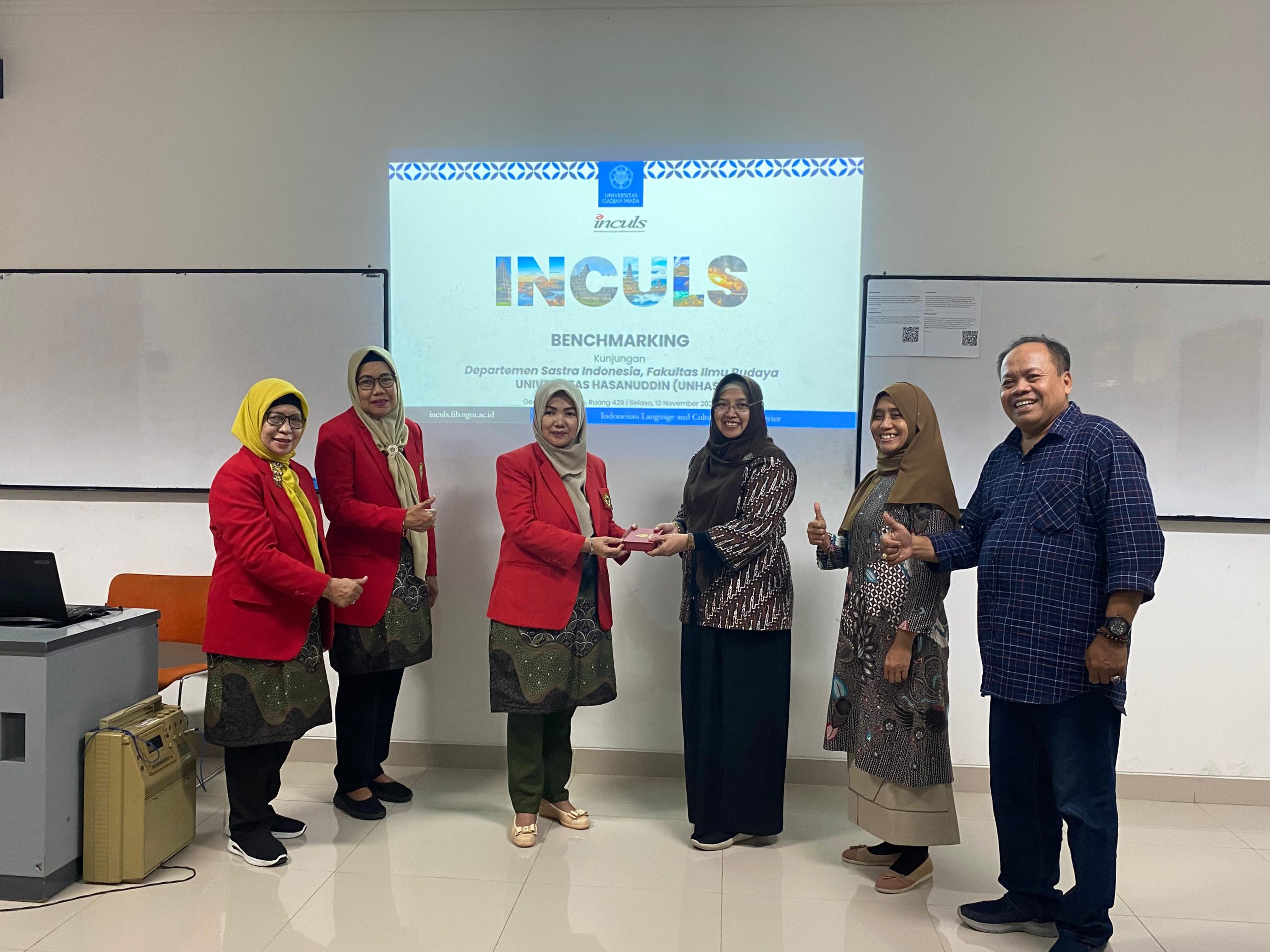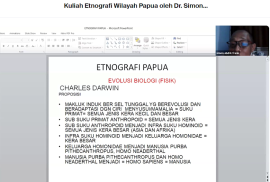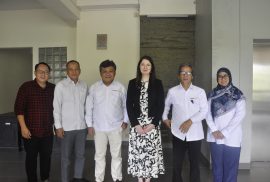The Roadshow of Master of American Studies UGM to the City of Heroes, Surabaya, which was held on November 28-29, 2024, successfully became an important momentum in expanding academic networks. In addition to carrying out the study program promotion agenda, visits to Airlangga University (UNAIR), as well as the U.S. Embassy and Consulate in Indonesia, Surabaya also reflects the commitment of the Master of American Studies Program to continue to advance the field of transnational studies and strengthen collaboration between institutions.
The UGM delegation made the first visit to the Master’s Program in Literature and Cultural Studies, UNAIR on Thursday, November 28, 2024. On this occasion, 13 students of Master of American Studies were accompanied by the Head of Study Program, Dr. Aris Munandar, M. Hum. Upon arrival at UNAIR, the group was warmly welcomed by the Head of Master of Arts in Literature and Culture, UNAIR, Mr. Edi Dwi Riyanto, S.S., M.Hum., Ph.D., who is also an alumnus of Master of Arts in American Studies, UGM, as well as several representatives of lecturers and students of Master of Arts in Literature and Culture and English Literature, UNAIR. The meeting began with the presentation of information on the excellence and curriculum of the Master of American Studies, UGM by Dr. Aris Munandar, M. Hum. Then, this presentation was continued by several students who shared their academic and non-academic experiences while studying at the Master of American Studies, UGM.
This visit also resulted in productive discussions through Forum Group Discussion (FGD) between lecturers and students. In particular, the lecturers collected stakeholder aspirations in the context of the 2025 Curriculum review. For students, this meeting not only strengthened the relationship between students of Master of American Studies UGM and Master of Literary and Cultural Studies, UNAIR, but also resulted in initiatives for collaborative work programs in the academic field for 2025 through the student associations of Master of American Studies, UGM and Master of Literary and Cultural Studies, UNAIR. By sharing insights about their respective curricula, scientific publications, and excellent programs, both study programs have opened up opportunities for broader joint development.

Picture 1 Forum Group Discussion of UGM and UNAIR lecturers
On Friday, November 29, 2024, the group visited the U.S. Embassy and Consulate in Indonesia, Surabaya to conclude the roadshow series. This visit became a valuable experience for Master students of American studies. The talk show session with Kayla M. Smith, Foreign Service Officer, provided a new picture of various American cultural traditions, especially related to the Thanksgiving celebration. In addition, the discussion with a warm and intimate atmosphere with Kayla, who also relates some Indonesian cultural traditions, also adds to the experience of cultural dimensions that are relevant to the context of transnational American Studies for students.

Picture 2 Group Photo at the U.S. Embassy and Consulate in Indonesia office, Surabaya
This series of roadshows provides experience of synergy between academic institutions and external parties to encourage inclusive, cross-cultural, and contextual learning for students. The success of this event is expected to be a foothold for deeper collaboration in the future, strengthening the position of UGM Master of American Studies as an innovative, adaptive, and globally oriented study program.

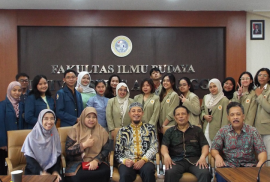
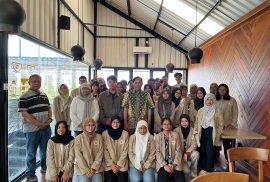
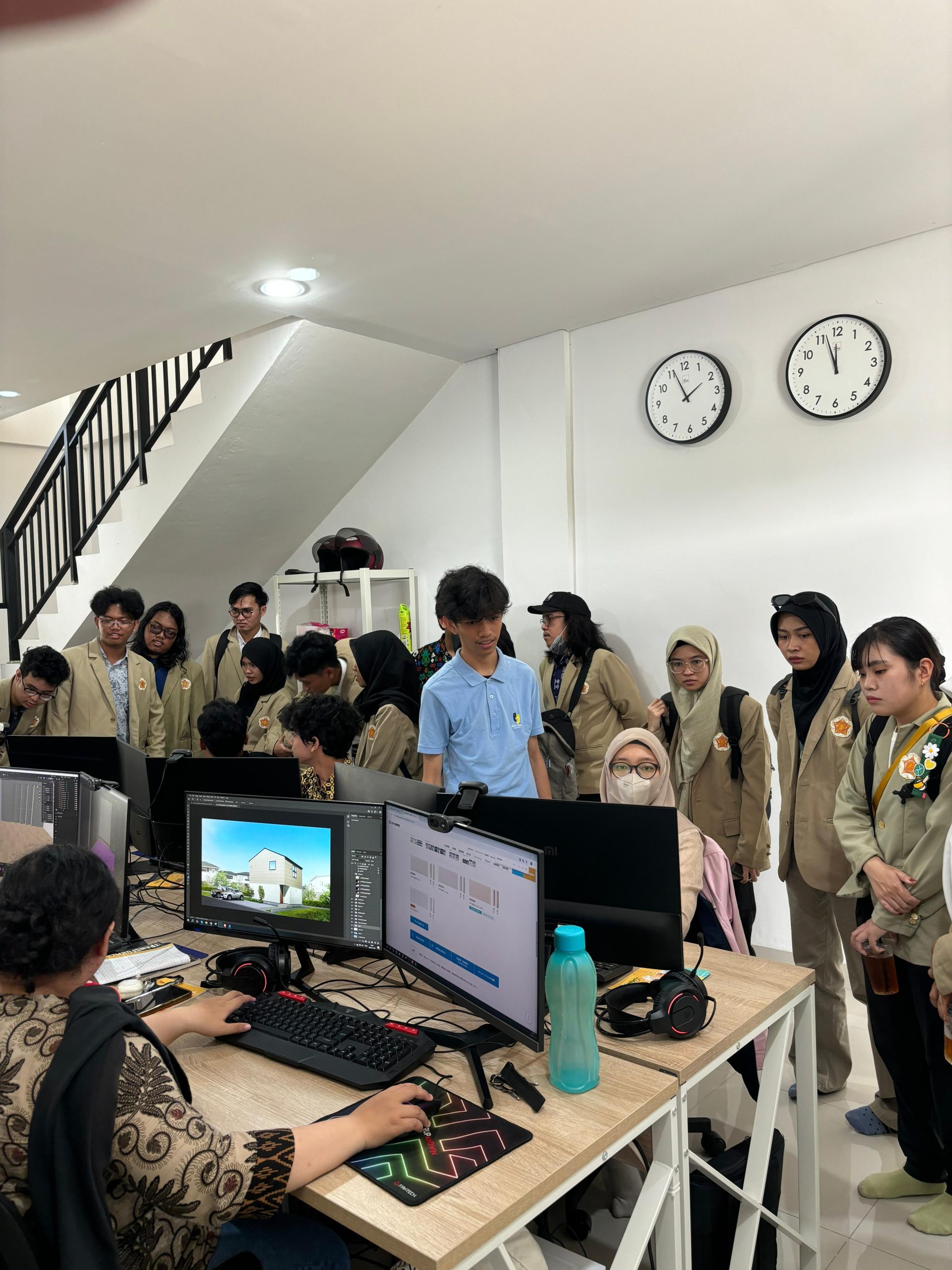 Picture 1 Japanese Counselling Study Programme Students Conduct Field Study at PT Rupa Raya Indonesia, Semarang
Picture 1 Japanese Counselling Study Programme Students Conduct Field Study at PT Rupa Raya Indonesia, Semarang